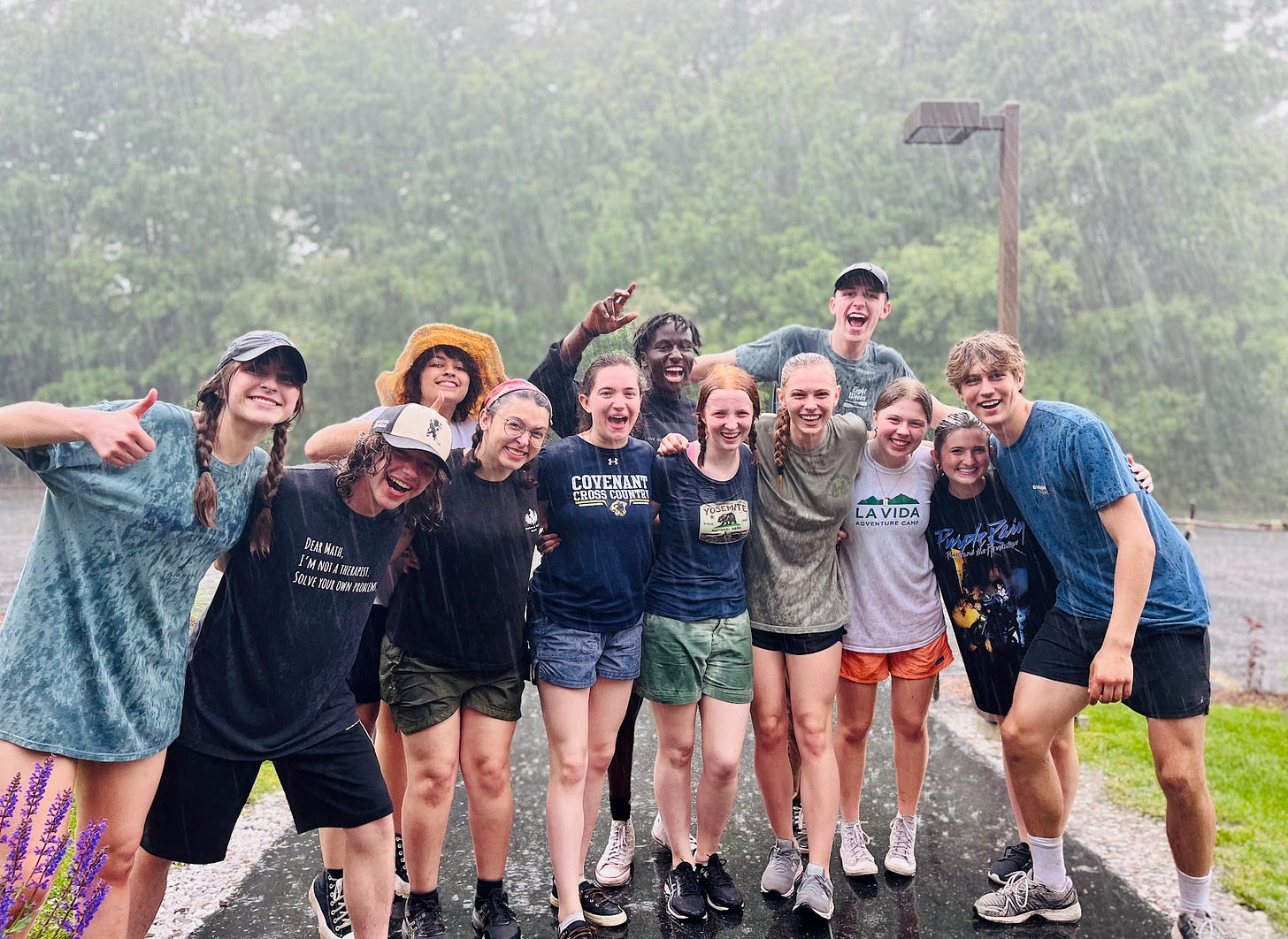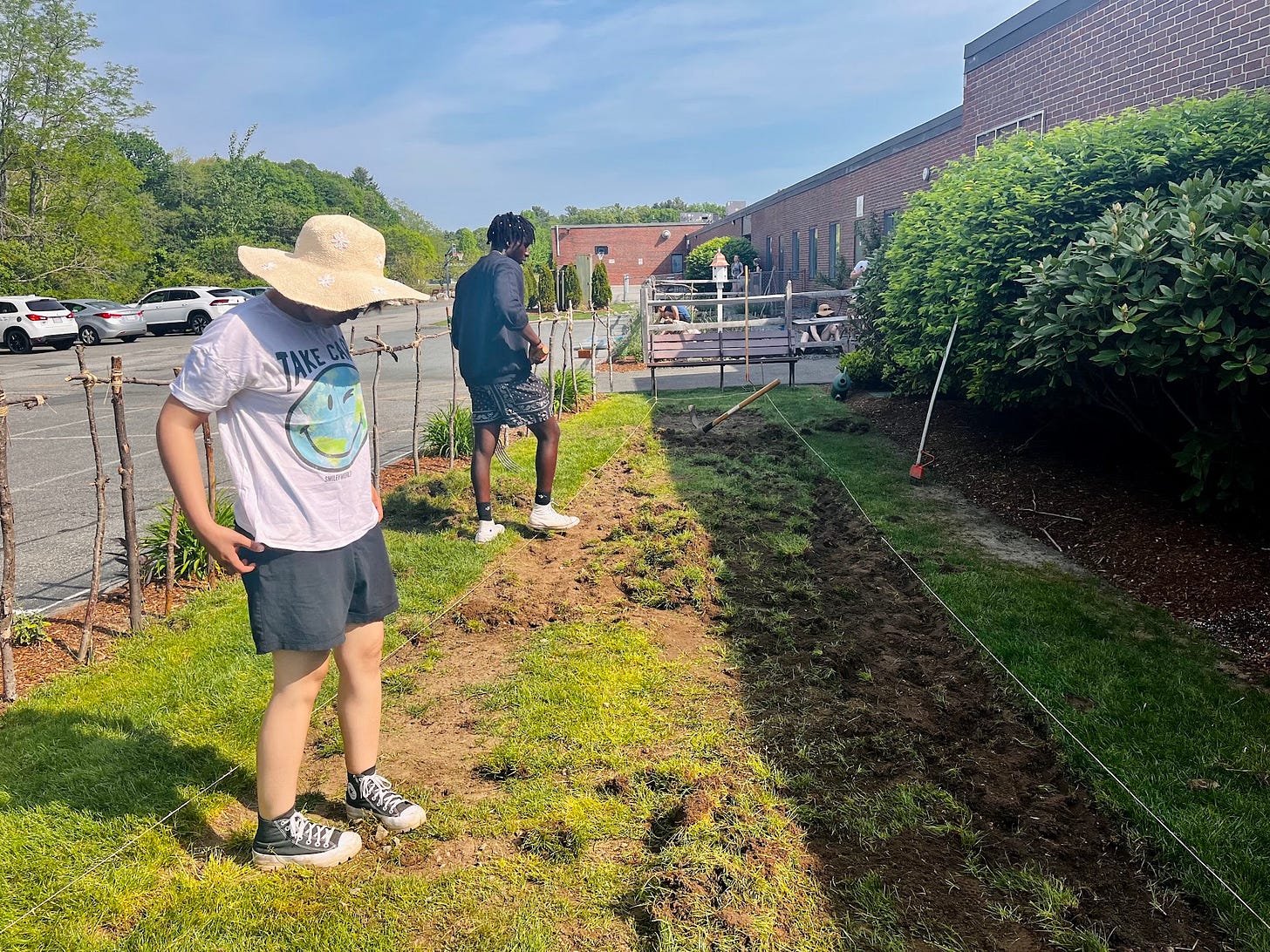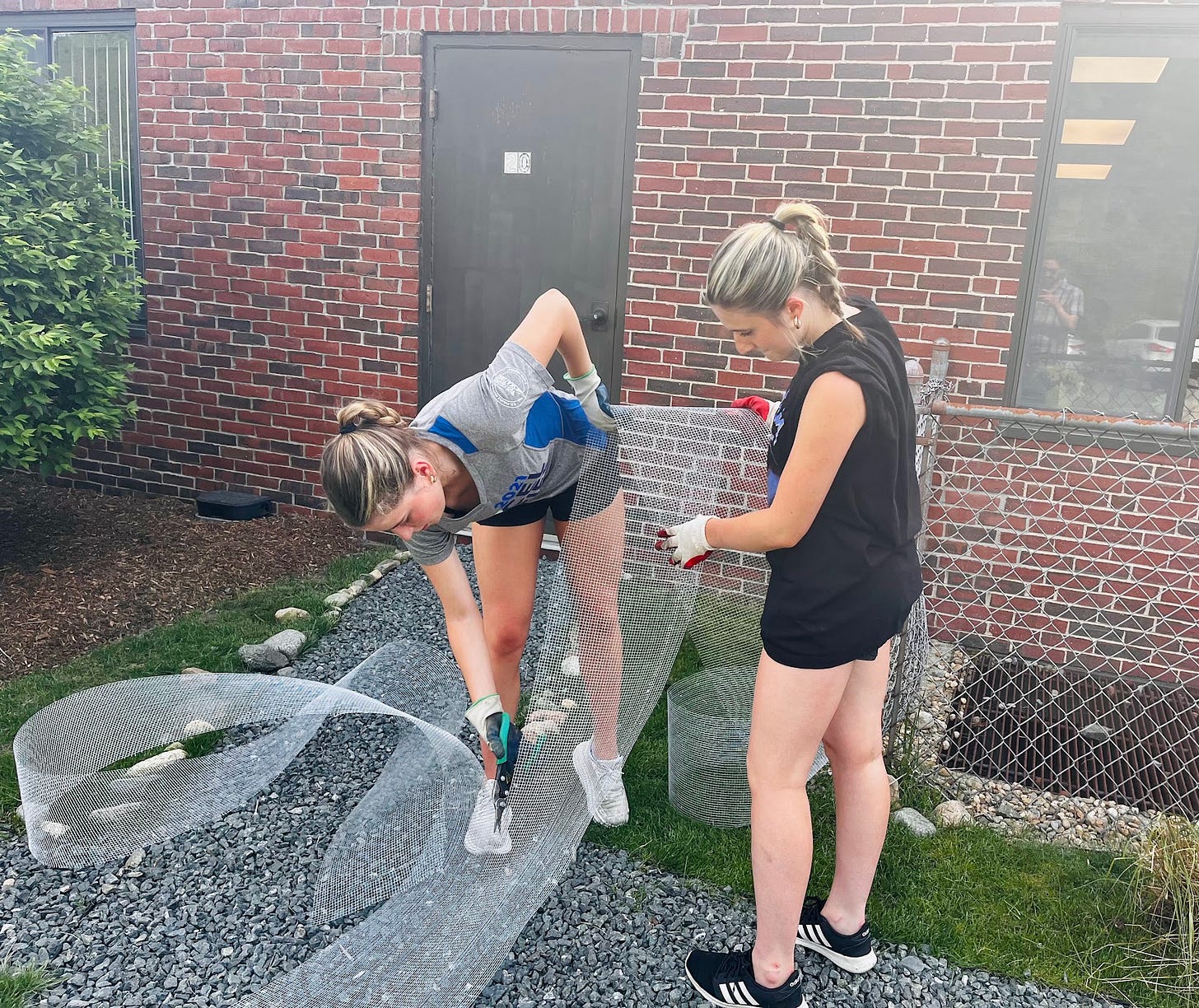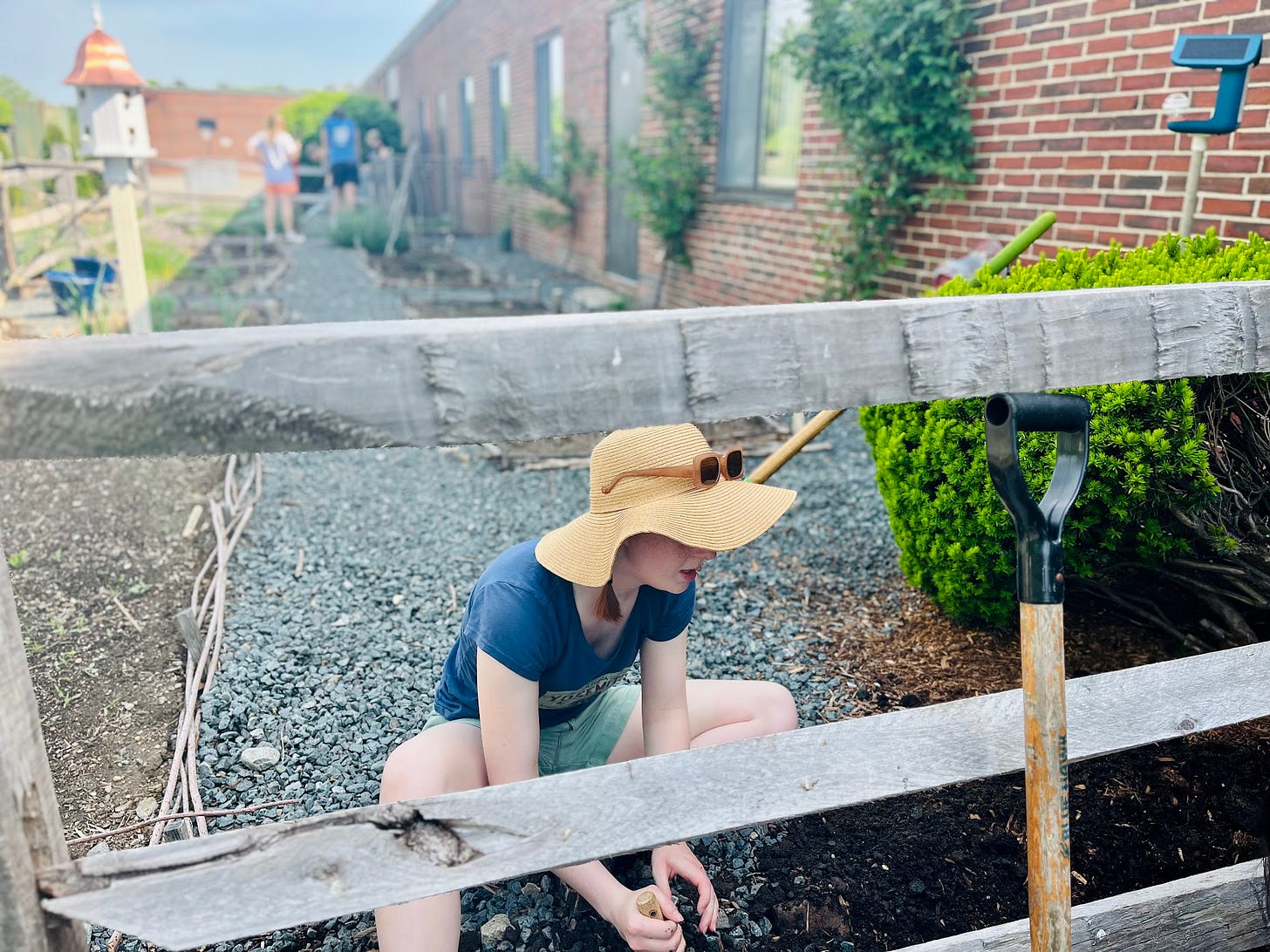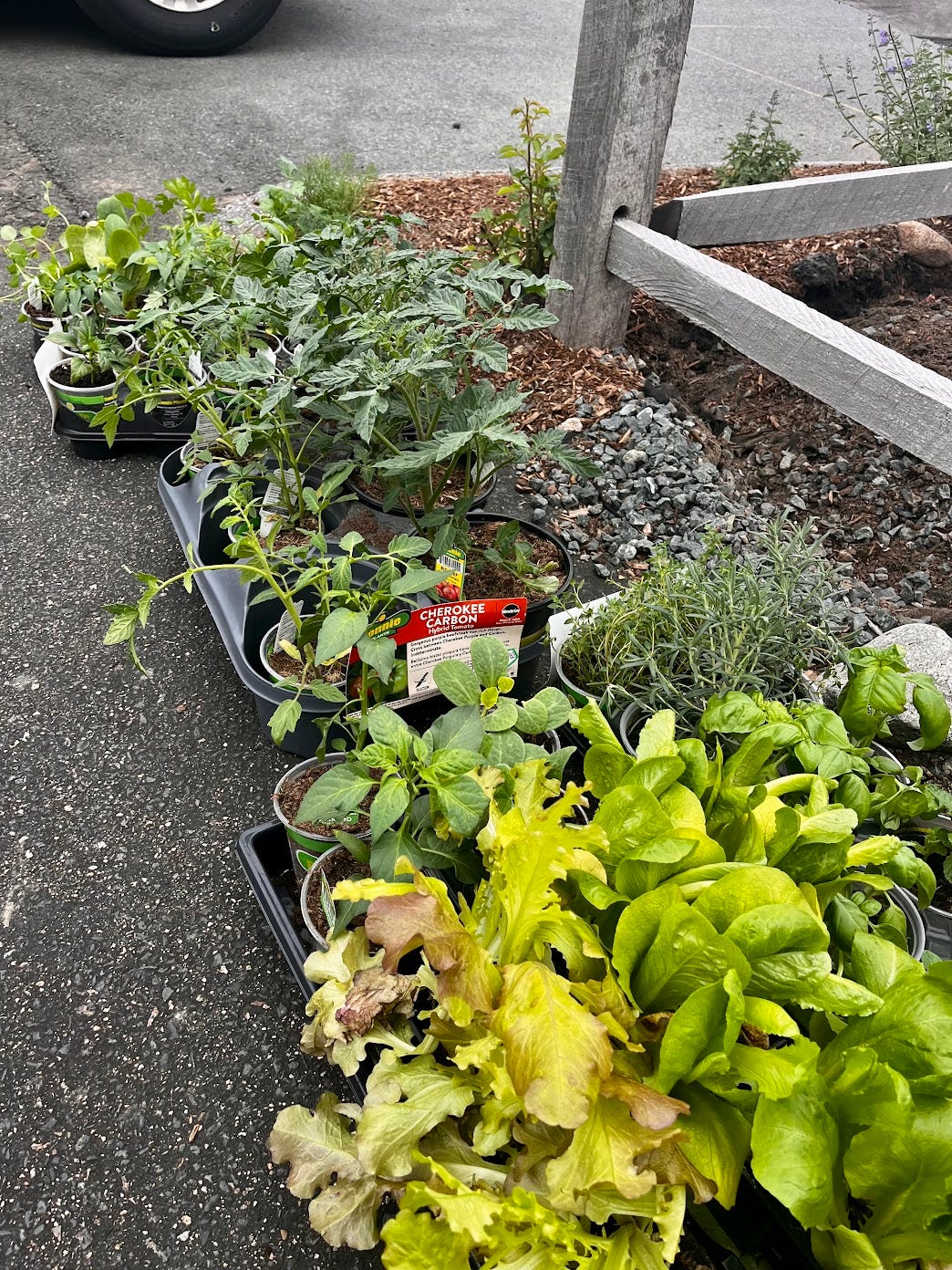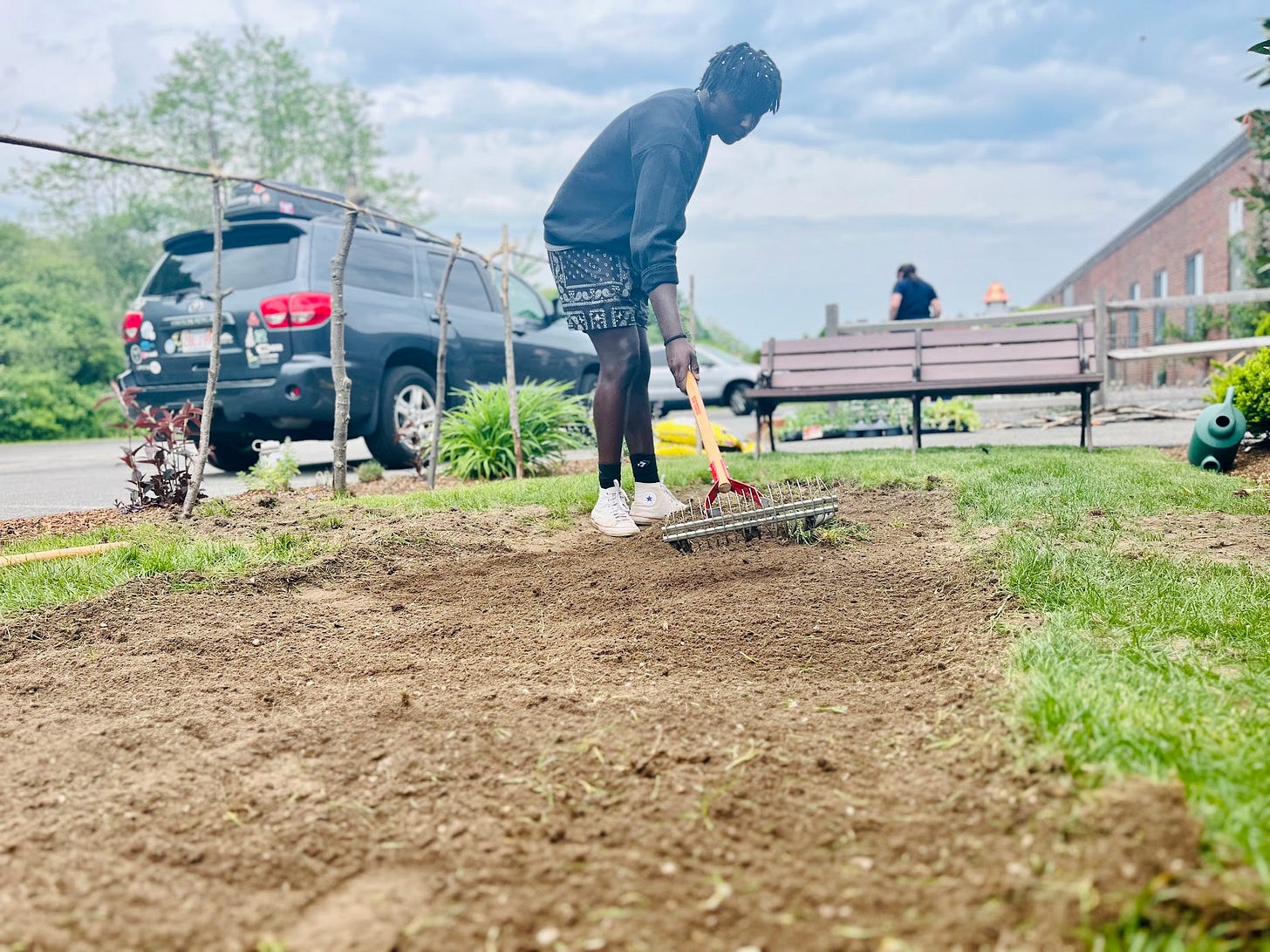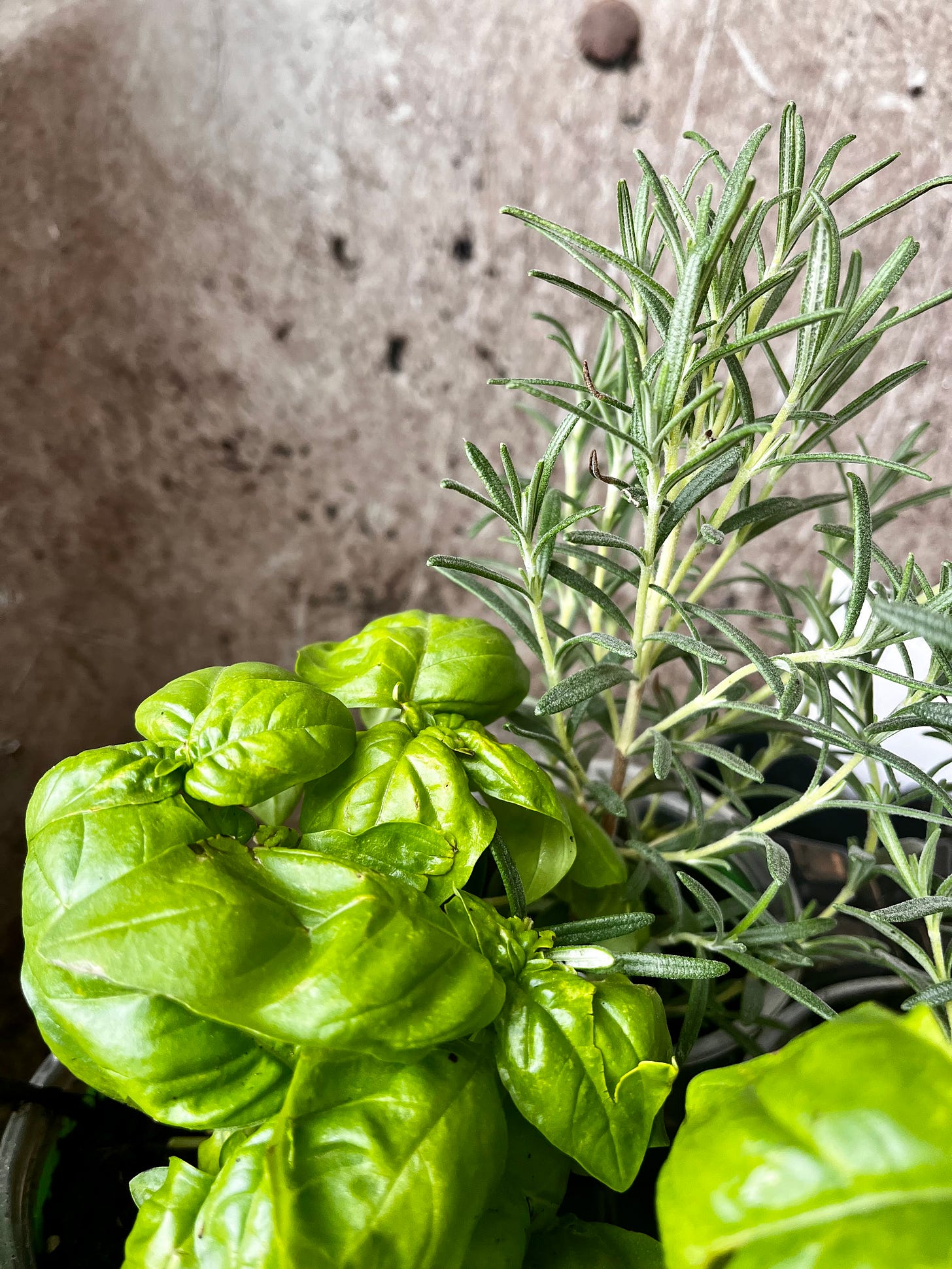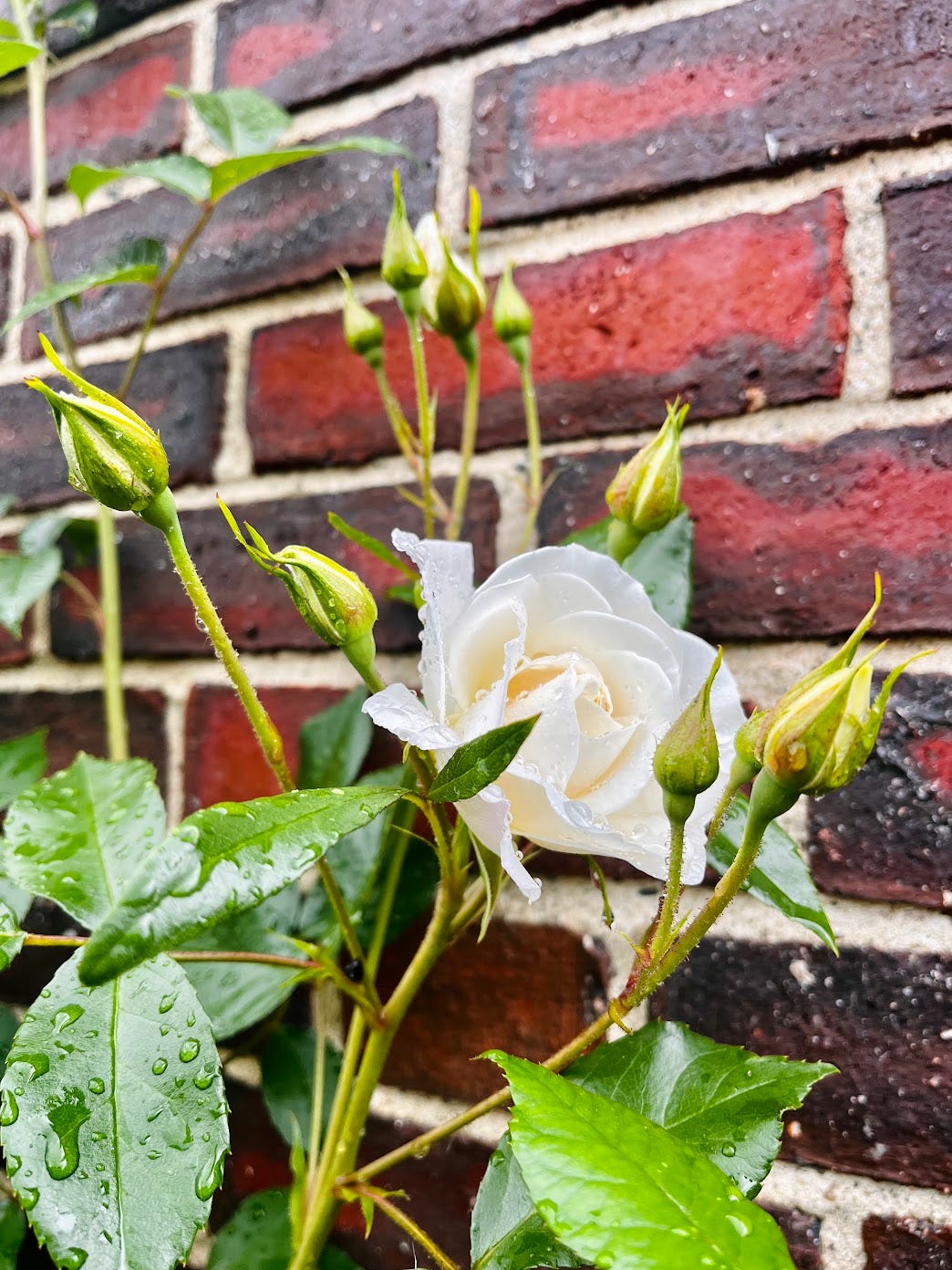The Send-Off
Here's to a Hard-Working Class
The Classical Roots Program may have started in 2021, but CCA’s tradition of student-driven, self-giving labor in the school’s gardens began two years before. That year, the Senior Class volunteered to spend one of their last days on campus renovating a courtyard. I can still remember the atmosphere of excitement as they pulled out weeds, painted walls, and planted a Ginko tree in what is now our Upper School of Logic and Rhetoric. Their enthusiasm was palpable, and their playlist was a very classy mix of golden-era funk and early electronica.
If there is a single moment to which I can attribute the beginning of Classical Roots, that’s it. The symbolism of our soon-to-be graduates planting trees and seedlings on campus—whose full flourishing they would not be around to see—was palpable and profound. The day seemed to reorient and reinvigorate the whole group. They became intensely conscious that they’d participated in an institution that had come before them and would continue after them and that, for better or for worse, they were leaving behind a legacy that would continue to grow.
We’ve been doing a Senior Work Day ever since, a sort of last chance, sponsored by Classical Roots, for the Seniors to pour some sweat and love into the community that has poured so much of both those things into them over the years. Traditionally, this is also the day when our vegetable garden gets planted. It’s the beginning of a yearly arc that ends when, in September, I will march next year’s Seniors out to the garden and let them gather and eat the tomatoes, herbs, and other delicious things growing there; feasting on the fruits planted by those who came before. I’m still surprised by how often the garden serves as a tool for object lessons like these, a locus where we can memorably embody some of the things that should matter to our graduates.
This year, the Class of 2024 spent an oppressively hot and muggy morning mulching the trees in the orchard, rabbit-proofing the veggie garden’s fenceline, and ripping up a mangey patch of grass near the USLR entrance to make way for a bed of wildflowers. As the sky socked over and the mercury rose, they laughed and worked and, frankly, did a tremendous amount of work. The playlist? Big-band jazz. Good choice. When I sent them on an hour’s lunch break at about noon, the rabbit-proofing was about halfway done, tools and plants were scattered everywhere, and all of them were covered in dirt and sweat.
An hour later, right as we were regathering near the door, the bottom dropped out. It was the year’s first real summer storm, throwing down sheets of warm rain so hard you could barely see the other side of the parking lot. “What do we do?” they asked. “Go get the tools out of the rain!” I yelled. They ran out in a cackling gaggle and were soaked instantly. General revelry ensued. It was a good moment.
To their credit, a big group of them stayed on in the continuing rain and finished the rest of the job. “We can’t leave it halfway done!” they told me. When they finally went home, they were muddy and soaked to the bone, but the wire was nearly buried and stapled along the whole line of the veggie garden’s fence. So long, rabbits!
For me, the day was a reminder of how much I admire this group. They’re a smallish class, even for our small school. They’ve had their share of drama, to be sure, but they’re also game for things. They work hard, in and out of the classroom, and they’re willing to trust you when you tell them something is worth their time. That’s a rare quality, but a golden one: a posture of intelligent openness that lets good experiences in and accepts that the finer things come only to those who are willing to sweat, dig, and run out into the storm.
Here’s to more classes like the Class of 2024.
Know anyone with a green thumb? Help grow our family of gardeners, educators, and enthusiasts by referring a friend and you can earn rewards, including PDF guides to program development, my top gardening tips, and more:


